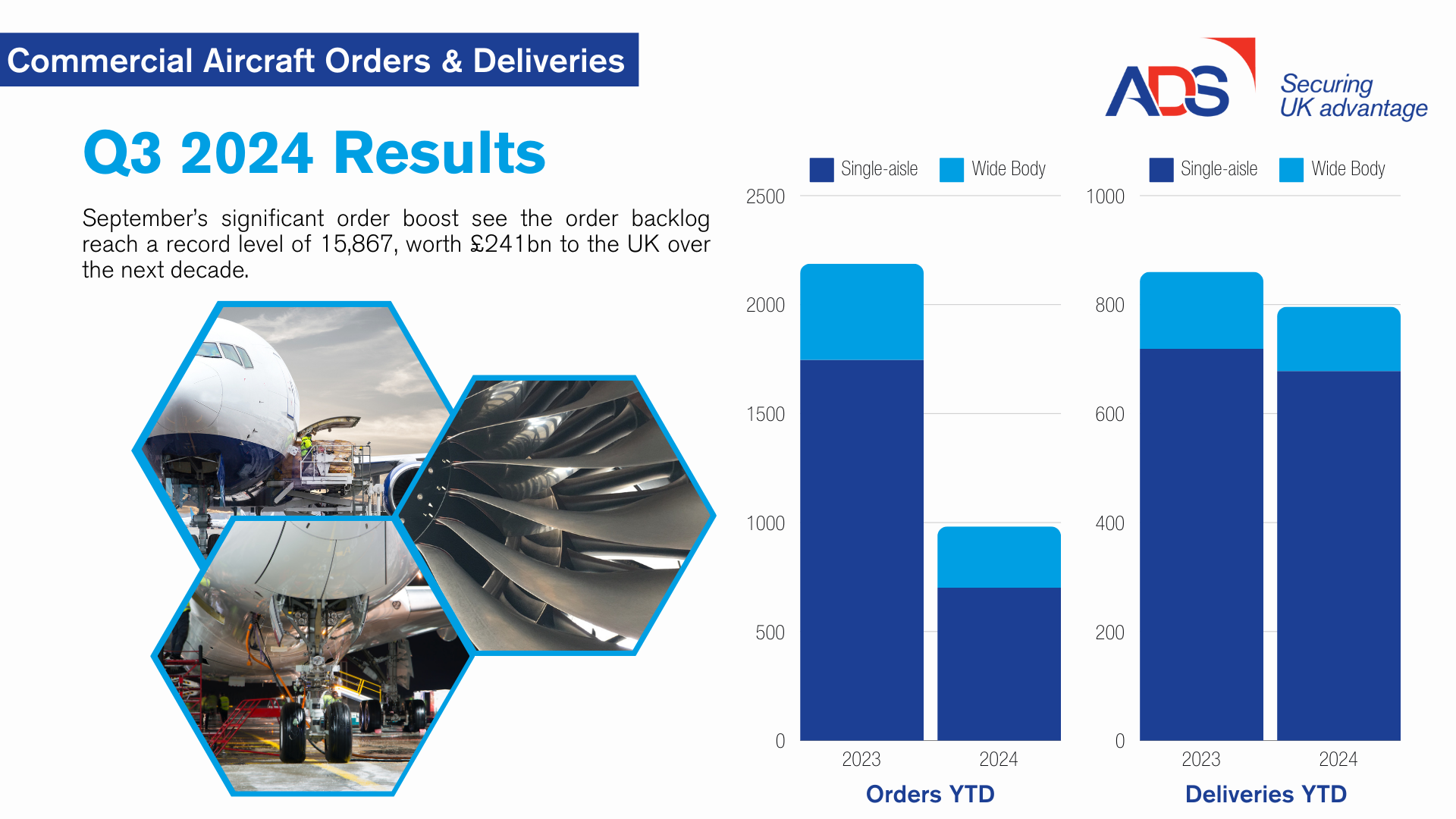
- Despite a reasonable quarterly performance of 295 aircraft deliveries, the most deliveries of any post-pandemic Q3, year-to-date deliveries remain 7.5% lower than in 2023.
- Aircraft orders spiked to 300 in September, the highest in the month for a decade, but despite this, aircraft orders remain 55% down year-to-date.
- September’s significant order boost has contributed to the order backlog reaching a record level of 15,867, worth £241bn to the UK over the next 12 years.
London (26 October 2024) – Commercial aircraft deliveries are down 7.5% in the first nine months of 2024 compared with the same period in 2023, according to ADS, the trade association for the UK’s aerospace, defence, security and space sectors.
Year-to-date orders similarly reflect a slowed picture at 982, down 55% on the record aircraft orders placed in the first nine months of 2023. A sharp increase in orders during the month of September has partially improved the comparative year-to-date 2024 orders to 2023.
This increase in orders has also contributed to a record aircraft order backlog of 15,867, which is 8% higher than at the same point last year, and worth roughly £241bn for the UK over 12 years of work.
The decline in both year-to-date orders and deliveries risks upending the momentum of the post-pandemic recovery, suggesting 2023 might be an outlier for unprecedented demand across the global industry.
Aimie Stone, Chief Economist at ADS Group commented:
“Issues across the supply chain, regulatory hurdles, and workforce challenges in 2024 have impacted production rates and meant ADS has reduced its aircraft delivery forecast for the year as a whole.
“The challenges seen so far in 2024 by manufacturers and the supply chain to meet delivery targets is reflected in the global backlog of aircraft orders reaching a new record level. Whilst the reflected confidence in the industry is promising, the figures present a reminder that industry requires increased Government support to meet this demand and reach its full potential.
“It is encouraging to see Advanced Manufacturing named as a growth driving sector for the UK by the Government in the recent Industrial Strategy, with aerospace being a significant part of that sector. We now need to see that recognition supported by action on policy to make supply chains more resilient, foster innovation and attract investment.”
This year ADS released its 2024 Aerospace Sector Outlook, showcasing the sector’s value add of £10.9 billion to the UK economy, an increase of 16% compared to 2013 figures. The figures highlight 104,000 direct jobs in the aerospace sector, with a median salary of £48.7k – 39% higher than UK average, with the vast majority (88 percent) located outside of London and the Southeast.





